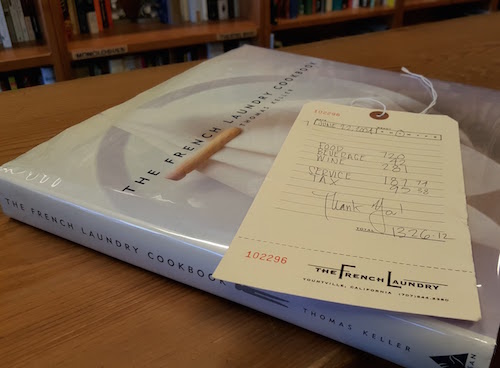Every used book tells at least two stories
When you ask Debbie Sarow if there are any rules that Mercer Street Books customers should keep in mind when bringing their books in to sell to the store, she bristles. She has a few basic rules for books she’ll never buy — computer books, hardback books without dust jackets — but Sarow doesn’t like to discourage customers from bringing any sorts of books in, because “it’s the one book that they think is garbage that turns out to be the prize. That’s part of the fun.”
Sarow loves looking through other people’s books. Most book collections betray a few narrow areas of interest — like palmistry, say. But sometimes she’ll find a reader with truly catholic tastes, from comics to cookbooks to poetry to film, and then she considers the books a puzzle to solve. She likes to arrive at the point where she can find connections between the disparate subjects. A book collection is its own form of biography, and Sarow's 15 years in the used book business has transformed her into a very astute reader of those stories.
Even more meaningful? The items that people leave inside their books. Sarow downplays the items she finds at first: “It’s not like Found magazine,” with outrageous flourishes of personality tucked behind every page. Mostly, she says, it’s “letters and grocery lists,” and “not as much money as you’d think.” When flipping through a used book, she’ll occasionally find a piece of foreign currency used as a bookmark, but if there’s a little old lady out there stashing her fortune away in her library, Sarow has yet to encounter her.
And while Mercer Street Books employees still find photos tucked into books, those are dwindling with the advent of digital photography. But there are occasional startling glimpses into other lives.
Mercer Street employee Aaron Bagley talks about his favorite find: a single piece of paper with handwriting on either side. “On one side, a guy had written out all the reasons why he had to leave this woman,” Bagley said. He was “coaching himself” into breaking up with her. But on the other side of the paper, “she had found the list and responded to everything he wrote,” in highly critical terms. On one side, he wrote that she didn’t like his friends; she replied on the other side that his friends were losers. Bagley recalls one specific thing the man wrote to himself on the list: “take the bike. It’s the only thing you can call yours.”
Other items, though much less dramatic, contribute to the emotional value of the book. In a copy of the French Laundry Cookbook, Sarow found a receipt from the restaurant for a dinner totaling over 1300 dollars. The receipt, handwritten and elegant, is more than a bookmark, it’s a memory that, combined with the book, tells a new story. Sarow can’t bring herself to separate the receipt from the book. “They belong together,” she says, and they’ll be sold as a pair.
